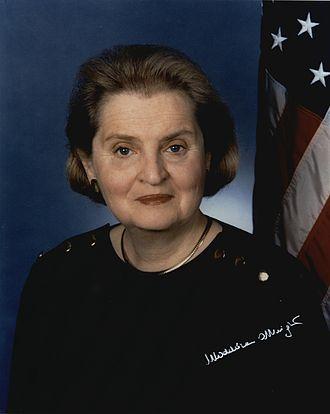 It would be helpful if the professional political class would stop describing America as split between red states and blue
It would be helpful if the professional political class would stop describing America as split between red states and blue
At THIS MOMENT OF SHOCK, SADNESS AND HOPE, it might be wise to reflect on the two most dangerous words in the human vocabulary: "us" and "them". On Jan. 6, we received a dramatic reminder of this peril when our nation's political divisions erupted into a spectacle of lawlessness on Capitol Hill.
The impulse to choose sides is inherent in our species. Psychologists point to our desire to be safe by joining groups with which we have an affinity, our fear of the unknown and our vanity; we want to think of ourselves as better or smarter than the other. These traits are ingrained.
When I was a child in Europe, my own life was knocked off course early on by Hitler's race-based conception of "us" vs. "them" and later by Stalin's more ideological one. When I was in the U.S. government, my daily preoccupations were with blood-drenched rivalries in the Balkans, the Caucasus, Africa and the Middle East. In those years, the U.S. worked hard to help countries in faraway places to cool clashes, and we often pointed to our nation as a model, citing the motto "E pluribus unum": Out of many, one.
Now, we do not see ourselves as much of a model. Immensely destructive forces have been unleashed in our country. The trend has been evident for at least a quarter-century but has, in the past four years, assumed the strength of a hurricane. Our nerve endings have been rubbed raw. Political rallies have devolved into exhibitions of hate. Public figures are threatened and harassed, their homes vandalized. Debates have been supplanted by shouting matches. At the very highest level, democratic institutions have been undermined and mocked. Surveys indicate that a growing number of Americans view partisan opponents as agents of evil.
Many among us would apparently prefer to live in a country where there is no place for the rest of us, i.e., "them." Confronted by this reality, many citizens are tempted either to retreat more deeply into their respective group identities or to insist piously that such categories are irrelevant and should not matter. Neither approach works. Exacerbating our differences is one road to disaster; denying them is another. Instead of fantasizing about a harmony that is out of reach, we should focus on ensuring that our inevitable disagreements lead whenever possible to constructive outcomes.
Democracy was designed to aid such a process, based on the premise that voters will ultimately prefer builders to bullies.
AS I APPROACH THE MIDPOINT OF MY NINTH DECADE, I see glimmers of light amid the darkness. Voter turnout this year was at a record high. President Joe Biden has been setting exactly the right tone, and judges and officials in key swing states deserve medals for valor. The recent pandemic relief act was a gift, albeit an imperfect one, from moderates in both parties. Senator Mitch McConnell and some other Republican leaders, after waiting far too long, ultimately chose loyalty to the Constitution over obeisance to a demented Commander in Chief. We should be conscious, too, that America has shown resilience in the past when dealing with sharp divisions, up to and including a civil war.
It should be clear given both our national experience and world history that no group has a monopoly on truth or virtue. However we conceive of "us," we have ample grounds for humility. There is no question that we all have a right to quarrel with one another; that's the democratic way. But we also have a responsibility to talk frankly and to listen carefully, to recognize our own faults and to refrain from dehumanizing labels on those with whom we disagree. It would be helpful, too, if the professional political class would stop describing America as split between red states and blue.
Notwithstanding the recent tumult, we remain one country, not two. Going forward, let us advocate vigorously on behalf of causes that concern us as individuals or groups; but let us also never forget that we belong in addition to a larger circle. No matter how we define "us", no matter how we define "them", "We the People" is an inclusive phrase.
